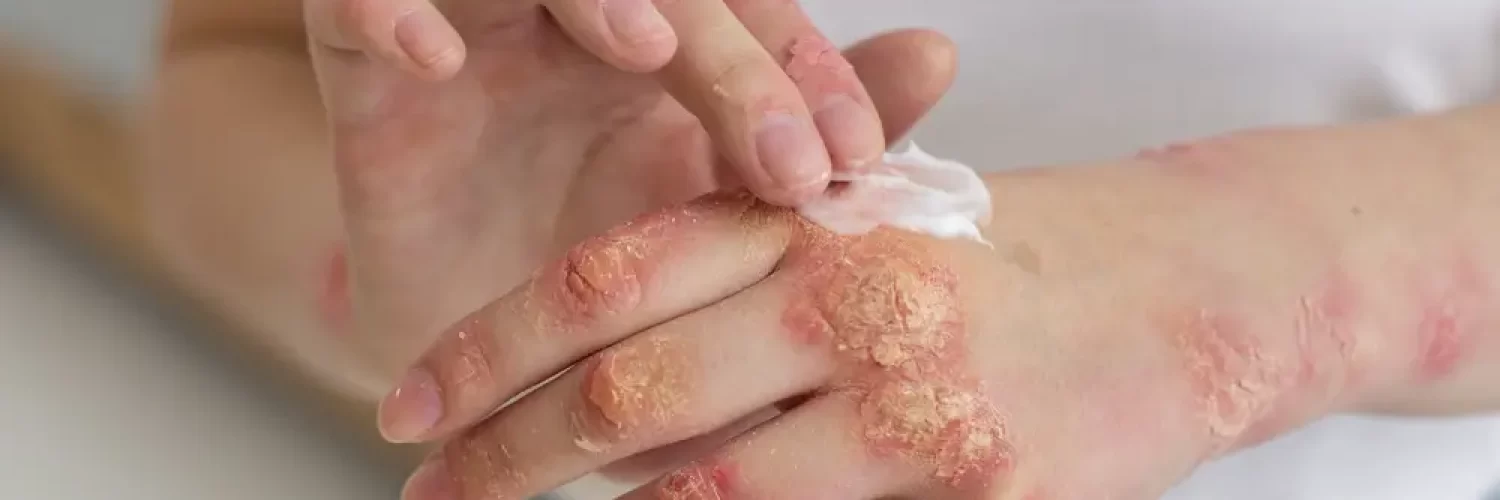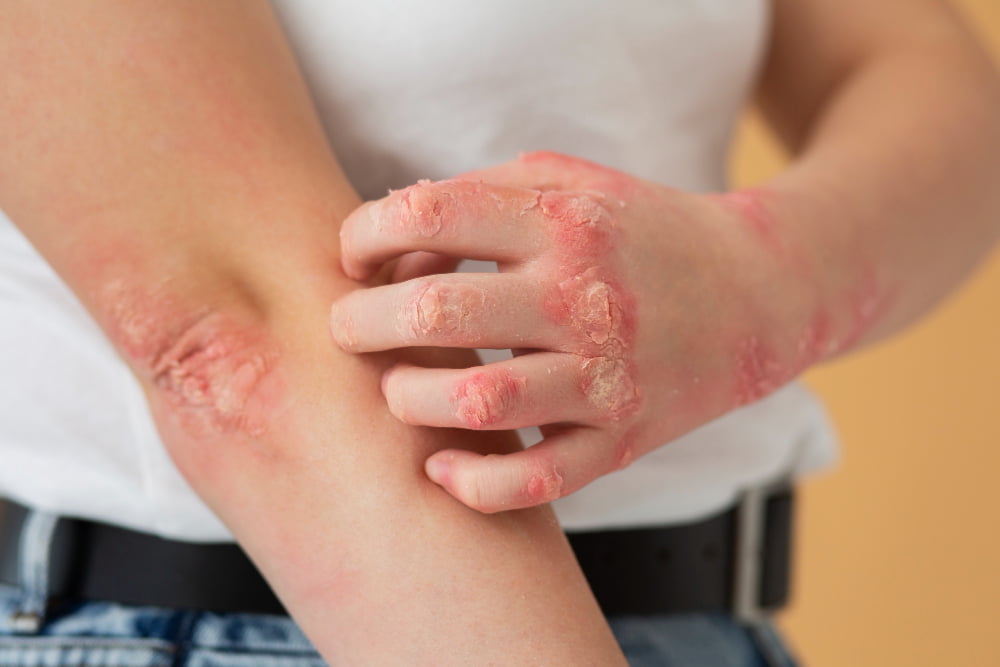
Weekdays : 8.30 am – 5.30 pm
Sat: 8.30 am – 12.30 pm

Sat: 8.30 am – 12.30 pm
How to manage eczema flare-ups?
Disclaimer: This article has been created for informational purposes only and is not intended to provide medical advice or be a substitute for professional medical advice, diagnosis or treatment. Always seek the advice of your doctor or other qualified health providers with any questions you may have regarding a medical condition.
Eczema, also known as atopic dermatitis, affects the lives of many people in Singapore and around the world. This chronic skin condition can lead to uncomfortable symptoms, emotional stress, and a significant impact on one’s overall health. In this article, we’ll explore effective strategies to manage eczema and its common symptoms. Understand the importance of seeking treatment for eczema, emotional support, and lifestyle adjustments.
Eczema is a common skin condition marked by red, itchy, and inflamed skin. It often presents during childhood but can affect people of all ages. There are several types of eczema, including:
Eczema can be triggered by a variety of factors, including:

While there is no cure for eczema, several treatment options are available to manage symptoms and improve overall quality of life.
To prevent flare-ups and manage symptoms, you can make lifestyle adjustments along with identifying triggers and seeking treatment.
Living with eczema can take a toll on one’s emotional well-being, leading to anxiety, depression, and low self-esteem. Therefore, it is essential to seek emotional support from loved ones and healthcare professionals. Talking about your experiences and feelings can be therapeutic and help you cope with the challenges of managing eczema.
It is important to consult a doctor or dermatologist if you are experiencing symptoms of eczema. They can provide an accurate diagnosis, recommend appropriate treatment, and offer guidance on managing the condition effectively.
Young children with eczema may need additional support in managing their symptoms. Parents can help by educating their children about their condition. This can include teaching them to avoid triggers and ensuring they follow their treatment plans. Supportive and understanding parents can significantly improve a child’s experience with eczema.
Coping with eczema in Singapore involves a multi-pronged approach that includes medical treatment, emotional support, and lifestyle adjustments. By seeking help from healthcare professionals and managing stress, individuals with eczema can improve their quality of life. Making appropriate lifestyle changes can also help minimise the impact of this chronic skin condition.
Remember, you are not alone in your journey. There is support available to help you manage and overcome eczema.




Dr Tan & Dr Ker are experienced dermatologists that have been treating patients suffering from atopic dermatitis (Eczema) for years

There isn’t a one-size-fits-all treatment to Eczema. Understanding the condition through a detailed assessment and customising a treatment for every patient is key to keeping Eczema in control.

The treatment for eczema in adults and children can differ, so it is important to find the most effective approach for each individual. Our specialists are experienced in treating eczema in both adults and children.